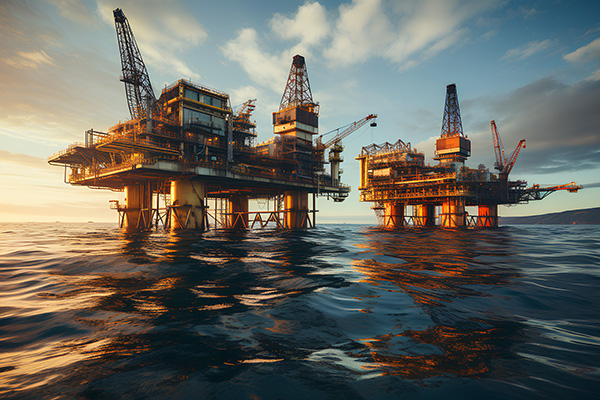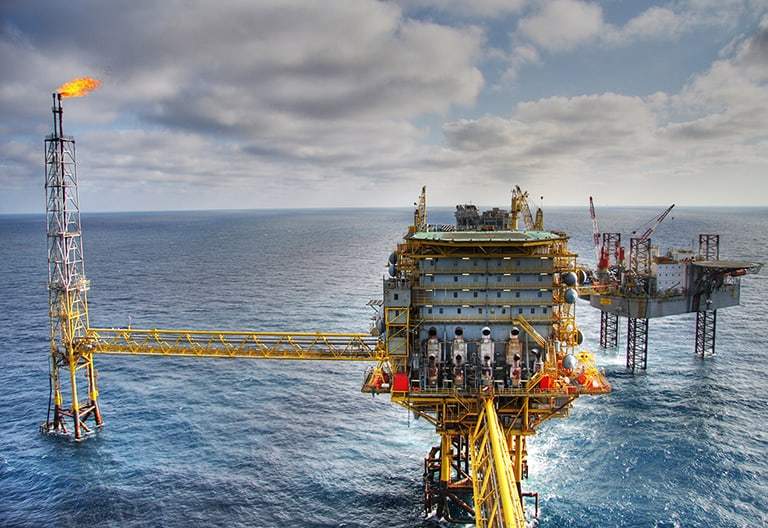
Is Rosebank really a positive for the energy sector?
Posted on 2nd October 2023 by Phil Ainley
The issue of oil and gas production versus green thinking and environmental issues has been around for decades. This week the green light was given for drilling to begin at Rosebank, which is situated between Shetland and the Faroe Islands.
There are two sides to the argument surrounding this controversial project, the economic value versus the environmental cost. In our article we look at both sides.
What is Rosebank oilfield?
Rosebank is an oil and gas field which lies approximately 80 miles north-west of Shetland.
It is said to be one of the largest undeveloped discoveries in UK waters, which could contain as many as 300 to 350 million barrels of oil (1).
The approval for drilling comes on the back of the government saying it would issue hundreds of new licences for oil and gas exploration in the North Sea.
Who owns Rosebank?
The oilfield is predominantly owned by Norwegian energy giant Equinor, with British company Ithaca Energy holding a 20% stake in the oilfield’s development.
Suncor Energy of Canada, which held a 40% stake in the oilfield, was acquired by Equinor in June 2023*, making Equinor the majority stakeholder.
*subject to relevant regulatory approvals.
How will drilling at Rosebank benefit the economy?
The oilfield is scheduled to begin producing oil in 2026. If drilling starts on time, Rosebank could total 8% of the UK’s total oil production between 2026 and 2030. The oilfield will also produce gas.
The estimated gross value added (GVA) of the development is £24.1 billion over the oilfield’s lifespan. That would amount to £2.1 billion per annum at peak production, which is the equivalent to 1% of the Scottish gross domestic product (GDP).
The drilling at Rosebank could also go a long way to helping Europe to have more control over the oil and gas it uses, buy reducing our dependency on the oil and gas supplied by Russia. The UK’s dependency on foreign oil has driven up both the cost of oil and inflation to very high levels, which has had a huge impact on the cost of living for everyone in the UK.
The investment in the development of Rosebank alone could be worth £8.1 billion, 78% of which would be spent in the UK. Of this approximately £4.1 billion would be spent developing the oilfield, with a further £3.6 billion in operating expenses, then an estimated £400 million in decommissioning expenditure.
What could Rosebank’s potential job creation be?
The North Sea oil industry supported 375,000 jobs in 2015, as of September 2023, that figure is now only 57% of that total at 213,000, of which only 30,000 jobs are directly employed in the sector (3).
At its peak, the oilfield is estimated to employ up to 1,600 direct, full-time equivalent (FTE) jobs. Approximately 1,200(75%) of those roles will be UK-based.
Once the oilfield is fully operational in 2026, fewer workers will be required. However, Equinor still anticipates that 300 FTE roles will be created during its 25-year lifespan, 90% of which will be UK-based.
Therefore, the development will bring a much-needed boost to the North Sea oil industry.
Will oil production at Rosebank offer lower energy bills?
There is undoubtedly an economic argument for the development to go ahead. The investment in the British economy, the creation of jobs, the futureproofing of our oil and gas supply, but will this project reduce the energy bills of the British consumer?
The answer is probably not.
Oil and gas from UK waters isn’t necessarily used in the UK. Typically, it is then sold on global markets at world market prices, so the project won’t cut energy prices for UK consumers, which has all-but been confirmed by Equinor. “If the UK needs Rosebank oil, it will go to the UK through open market mechanisms”, said Arne Gurtner, Equinor’s senior vice president for the UK (1).
Why is Rosebank in the news?
The biggest furore surrounding Rosebank is the threat to the environment, specifically to the native species of the British Isles. While some protestors have claimed the government is in ‘climate denial’ (2) by allowing drilling to begin and have said the oilfield development will prevent the UK from hitting its 2050 Net Zero target.
The UK government welcomed the decision to allow drilling to begin and said Rosebank had been subject to extensive scrutiny by the regulators, including undergoing a detailed environmental impact assessment and a period of public consultation before approval was granted.
The government went on to say that all new projects, including Rosebank, will be in line with the natural decline of the North Sea basin.
How could the project affect the environment?
There are just 20 countries responsible for 90% of all new oil and gas production, including the UK. One viewpoint that has been stated is that, when we already know we have enough supply to push the world past safe climate limits, this decision doesn’t make common sense.
Another, more obvious point is the effect the development of the oilfield could have on the planet as a whole and its influence on climate change. Especially after a recent report had discovered that native British species had declined on average by 19% over the past 50 years.
Speaking outside the DEFRA headquarters, the Springwatch presenter and wildlife campaigner, Chris Packham, said the decision to allow the development to go ahead was “catastrophic”, and that there are “no jobs on a dead planet”.
Another big issue that has been raised is the amount of CO2 that the new oilfield would allegedly produce, with some saying it would produce more CO2 than the 28 poorest countries in the world combined (4).
The production of oil and natural gas is a highly divisive topic, and this project will no doubt experience more campaigning in the forthcoming years. The key for the UK government will be to find a balance between safeguarding the UK economy and addressing climate change to ensure our futures are futureproofed both economically and environmentally.
Are you working offshore? Make sure you’re covered
Working offshore as an oil and gas contractor can be a lucrative career, yet it is hazardous and comes with risks that require contractors to protect themselves.
Caunce O’Hara have been offering insurance protection to oil and gas contractors since the early 2000s and have a wealth of experience and understanding of the offshore energy sector.
We can offer insurance policies including public liability insurance, employers’ liability insurance, personal accident insurance, legal expenses insurance, professional indemnity cover and business travel insurance.
Our policies can respond to protect you if you are alleged to have made a costly error in your work, caused an accident which has harmed someone or damaged someone’s property, if you are unfortunate enough to have an accident, or even if you are subject to a HMRC tax investigation.
The next time you’re contracted to work offshore, check your insurance. Does it provide you with peace of mind that your covered in the event of an accident?
For a quote for your energy contractor insurance, call 0333 321 1403 today.
Alternatively, click here to get a quick online quote.


